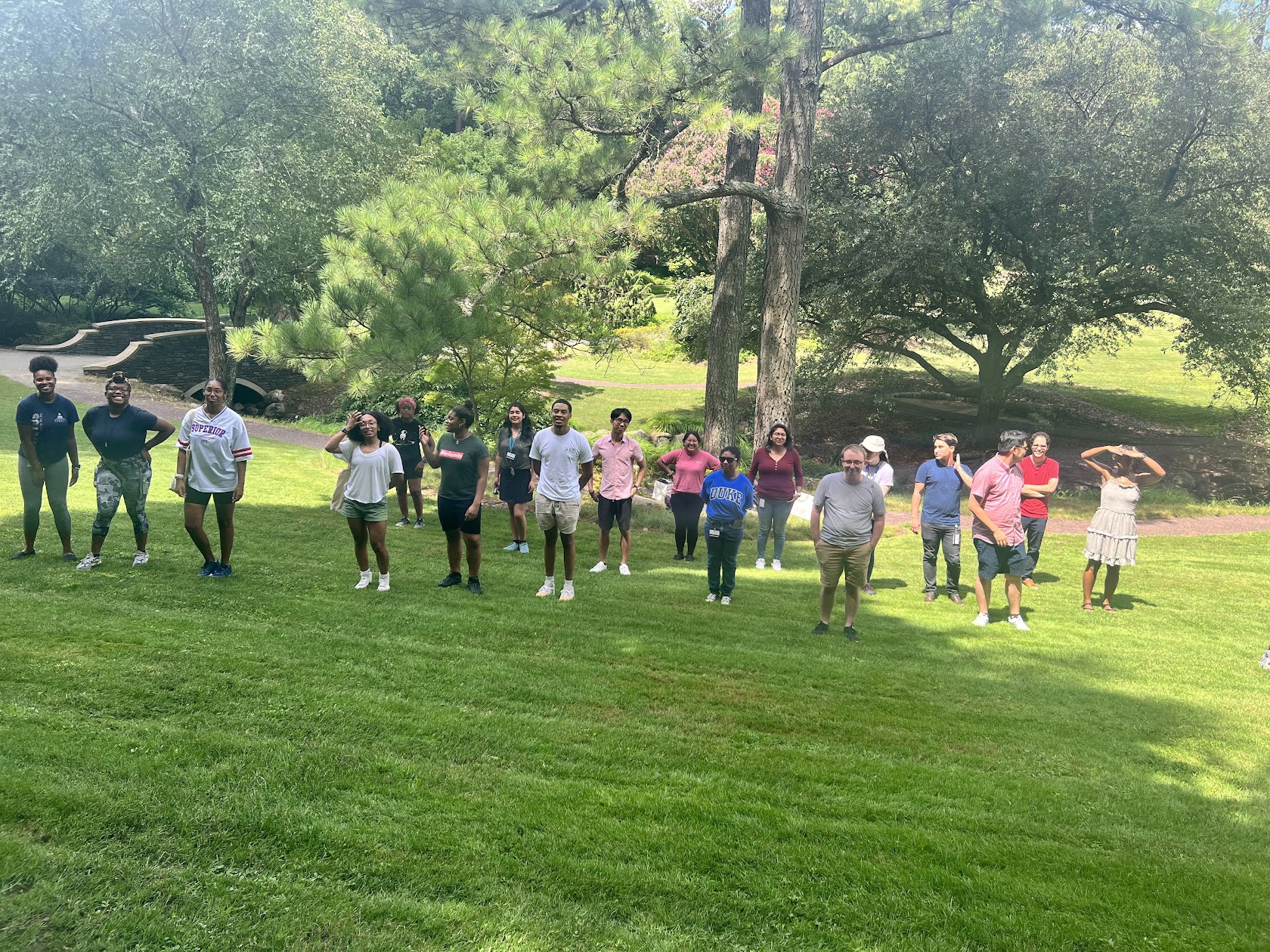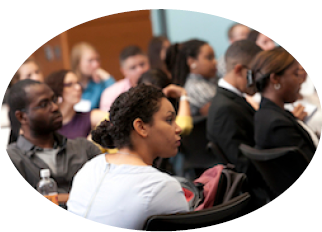
Graduate Scholars who apply and are accepted to BioCoRE are required to participate in the Early Start Program. As an Early Start participant, scholars are granted a monetary bonus in their first paycheck from the Duke University School of Medicine.
During Early Start, scholars engage in professional development and community building activities and immerse themselves into their life at Duke and in Durham. BioCoRE works closely with all involved graduate programs to make sure we complement orientation and other activities of the graduate programs to facilitate a smooth transition into graduate school. In 2025, Early Start will coincide with the 3MT Competition, which will be a fantastic opportunity for BioCoRE graduate scholars to learn more about the scientific community at Duke.
Finding a research lab for Early Start
While we don't recommend scholars start their lab research during Early Start, it is always a good idea to communicate with your Director of Graduate Studies as you find a lab of interest. BioCoRE graduate scholars may choose to do an extended first rotation (early August through part of the fall semester) or a separate rotation only for August. If you apply to enter a specific lab, you will need permission from the lab mentor to begin in early August.
What do students do in Early Start?
To get an idea of the Early Start programming, check out the detailed breakdown below.
Early Start is comprised of many workshops, events, and activities led by our director and Duke faculty and staff. The goal of Early Start is simple; help incoming BioCoRE scholars prepare for life as a graduate student at Duke University.
Early Start 2025 will run from July 28 to August 6. Students will receive rotation and class advising, attend workshops, take tours, meet faculty and senior scholars, and become immersed in the culture of Duke and Durham in the week before The Graduate School and OBGE's orientation events.
Early Start kicks off with an introduction to Duke and Durham. In your first days as a BioCORE scholar, you will:
- Receive assistance with documents and other essentials vital to getting started at Duke
- Learn more about the BioCoRE Program and its wonderful events
- Connect with your peers through interactive sessions
- Learn about all of the amazing resources available to you at Duke that will help you tailor your training experience to your future goals
- Meet the Duke Sloan Scholars through shared programming
- Learn the values of self-introspection, mindfulness, honoring values, and respecting differences
- Explore tools you can use to navigate the stress of your first year (and more!) in graduate school
See BioCoRE Cohort 10 on the first day of Early Start 2022!
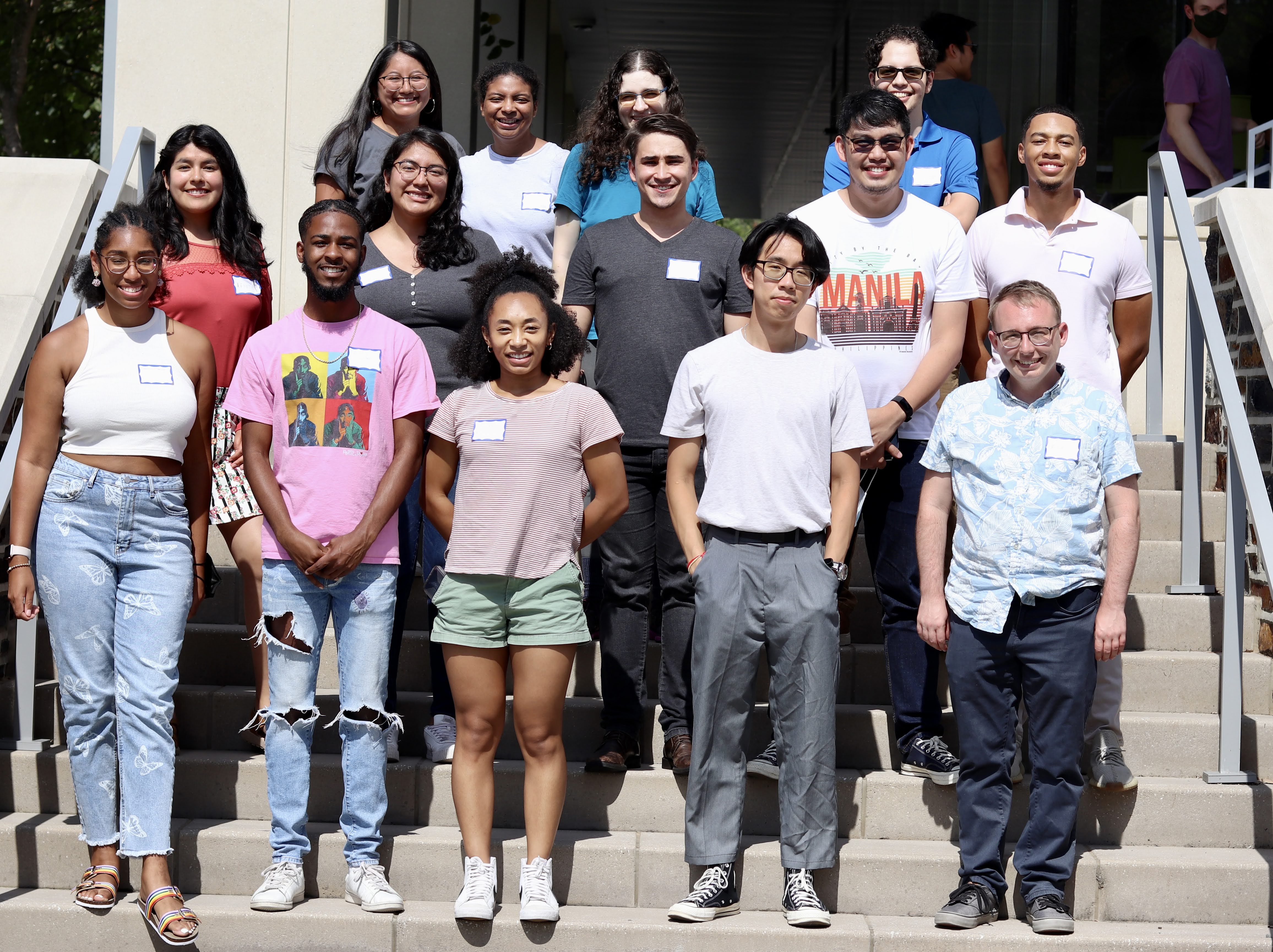
Demystify graduate school by learning directly from Duke faculty, senior BioCoRE students, and the BioCoRE program director about what you should expect in the first year and beyond. Learn how to align your expectations with your mentors and maximize your mentoring relationships in the years to come through the following sessions:
- Setting expectations and selecting rotations
- Aligning expectations
- Rotation Etiquette
See Drs. Valdivia, Wingler, and Tobin share their thoughts on what makes a good rotation student!
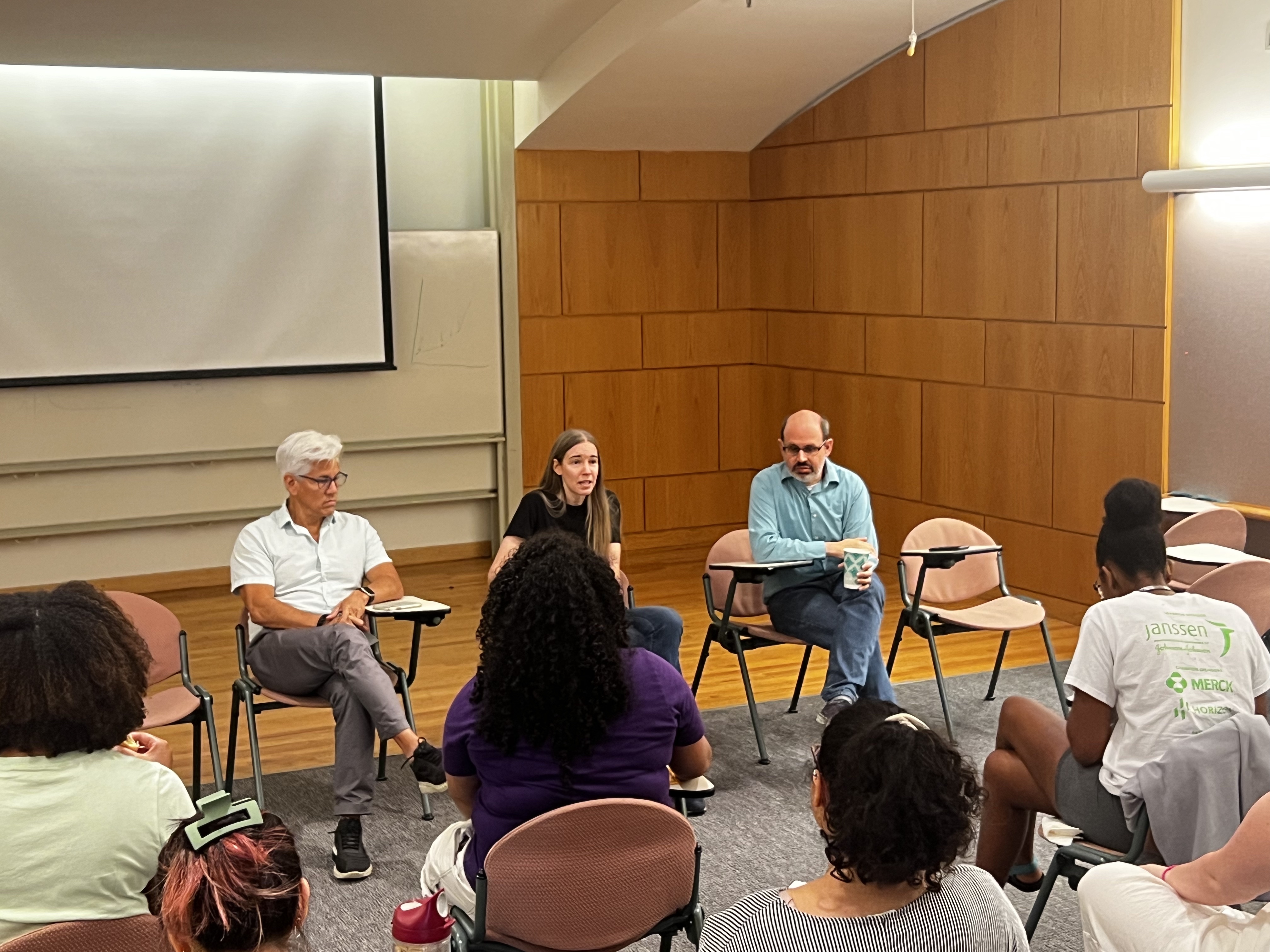
After learning a little more about Duke and what they can expect from their first year of graduate school, BioCoRE Scholars begin to work on building stronger relationships with each other and other members of their new community at Duke. You also get to learn more about the city of Durham through community service.
In your journey to building community, you will get the chance to:
- Familiarize yourself with Duke's campus by participating in a scavenger hunt
- Reflect on your first week as a BioCoRE scholar and get answers to all your lingering questions
- Meet the BioCoRE community at First Friday Coffee Chats
- Give back to the community by participating in a group volunteering session at one of the many amazing organizations in Durham
See BioCoRE Cohort 11 and Sloan Cohort 6 Team up to help Habitat for Humanity Orange County!
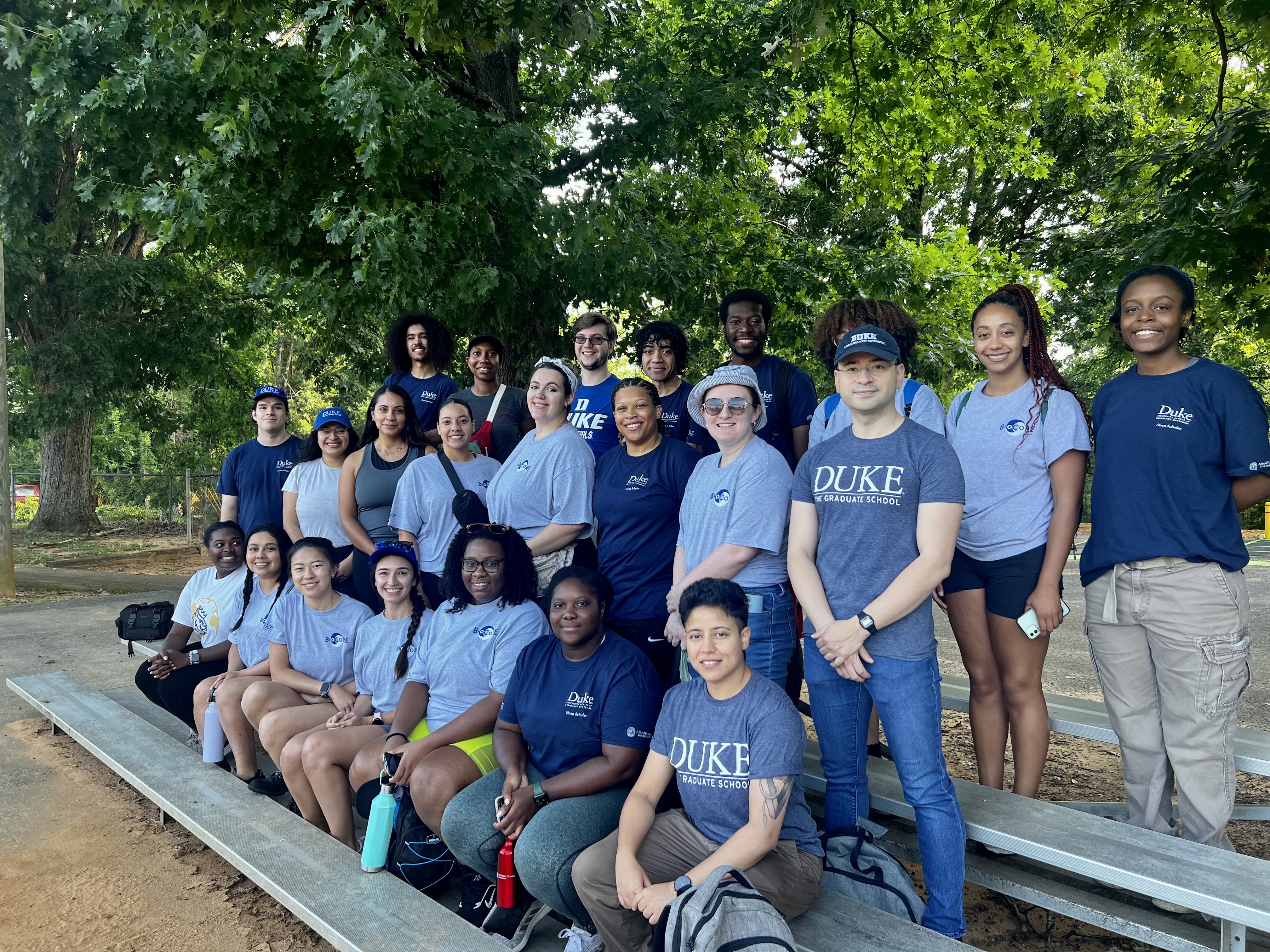
BioCoRE scholars will start to prepare for graduate school by learning the intricacies of presentations, publications, and grant applications through the following sessions:
- Presentation Preparation
- Authorship and the Publication Process
- Academic $cience: Why Grants are Important
The 2025 Early Start coincides with the final round of the 3 Minute Thesis (3MT) Competition, an internationally recognized competition for doctoral students to develop and showcase their research communication skills. BioCoRE scholars in Early Start will get to watch the finals of 3MT and see first hand how PhD students can synthesize incredibly complex research projects into just 3 minutes.
Scholars will also get the chance to unwind and get to know each other better by participating in some fun activities at the Sarah P. Duke Gardens.
See BioCoRE 10 learn more about student affinity groups at Duke at the first 'Getting Involved' expo!
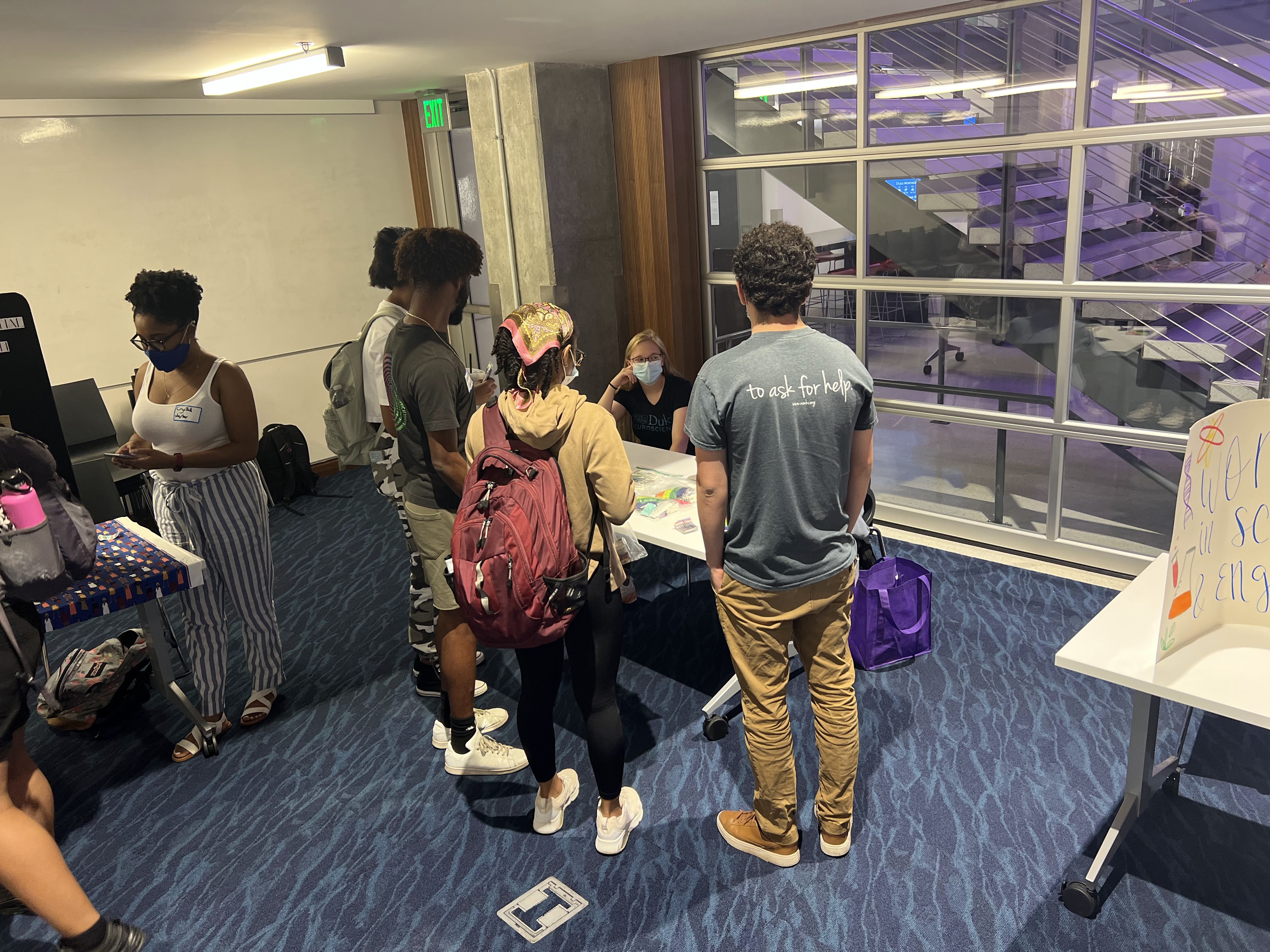
To round out Early Start, scholars will learn from senior scholars about their experiences at Duke thus far via interactive panels. Scholars will also have the chance to have 1-on-1 advising with the program director and work on their cohort meeting schedule. Ask those lingering questions and get ready to start graduate school!
- "What I'd Wish I'd Known My 1st Year"/"This is Not a Sprint" student-led panels
- Academic and rotation advising
- Cohort meeting scheduling
- Fun outing in Durham
See cohort 10 work through identity activities in Duke Gardens!
